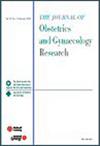PSG1 in Regulating Proliferation and Migration of Human Umbilical Vein Endothelial Cells Through the TGF-β/Orai3 Signaling Pathway
Abstract
Purpose
To study the function of pregnancy-specific glycoprotein 1 (PSG1) in regulating proliferation, migration, and vascular tone of human umbilical vein endothelial cells (HUVECs), and further explore its role in placental development and potential molecular mechanisms through co-culturing HUVECs with HTR8/svneo cells.
Methods
HUVECs were treated with 2, 4, and 8 μg/mL PSG1. The Cell Counting Kit-8 assay was used to test cell proliferation, apoptosis by Annexin V/PI staining, and intracellular calcium and nitric oxide (NO) levels by fluorescence microscopy. Western blotting quantified the expression of vascular endothelial growth factor (VEGF), transforming growth factor-beta (TGF-β), endothelial nitric oxide synthase (eNOS), calcium release-activated calcium channel protein 3 (Orai3), and PSG1. To study PSG1's effect on placental development, HUVECs were co-cultured with HTR8/svneo cells. siRNA-mediated knockdown of PSG1 was performed in both cell types to evaluate its impact on endothelial function, vascular tone, and trophoblast-endothelial cell interactions.
Results
PSG1 treatment enhanced HUVEC proliferation, with high concentrations reducing apoptosis. PSG1 upregulated the expression of VEGF, TGF-β, eNOS, and Orai3, and significantly increased both intracellular calcium and NO levels. Knockdown of PSG1 reduced these effects in HUVECs, and co-culture with PSG1-deficient trophoblast cells further diminished HUVEC proliferation, enhanced apoptosis, and decreased NO release. Our study highlighted the crucial role of PSG1 in endothelial cell function and vascular tone regulation. Furthermore, PSG1 modulation influenced eNOS activity, enhancing NO release, which contributed to vascular dilation.
Conclusions
PSG1 promotes HUVEC proliferation, inhibits apoptosis, and regulates vascular tone through the TGF-β/Orai3 signaling pathway, primarily by modulating NO production.

 求助内容:
求助内容: 应助结果提醒方式:
应助结果提醒方式:


